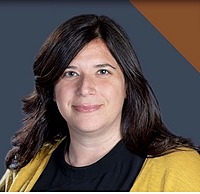Presenter: Sarah Kate Bearman, PhD, University of Texas Austin
Moderated by Jill Ehrenreich-May, PhD, University of Miami
Webinar Description:
This webinar will present a summary of the evidence base for clinical supervision, including its typical practice in usual care settings. Supervision provides normative, formative, and restorative functions within the practice of therapy for youth, each of which will be discussed. Specific microskills related to the implementation of evidence based practices, including modeling, role play, and session review with corrective feedback, will be described with regards to their empirical support. Participants will learn practical strategies for increasing the utility of supervision as well as tips for how to improve supervision when in a supervisee role.
Learning Objectives:
After the webinar, participants will be able to:
1. Identify and apply the existing evidence base for supervision
2. Describe how supervision is practiced in usual care settings
3. Utilize the benefits of supervision using practical strategies that have empirical support

Dr. Sarah Kate Bearman is a clinical child psychologist and an associate professor at the University of Texas at Austin and Dell Medical School. Dr. Bearman’s research focuses on the effectiveness and implementation of empirically supported practices (ESPs) for underserved youth and families in low-resource publicly funded settings. She is interested in understanding how existing research about youth mental health treatment can be used to adapt, develop, or support interventions that are user-friendly, accessible, and sustainable in places where children and families receive services. She is the co-author of the book, Principle-Guided Psychotherapy for Children and Adolescents: The FIRST Program for Behavioral and Emotional Problems (Weisz & Bearman, 2020) and has been involved in a number of studies testing mental health interventions for youth in schools (Bearman, Bailin, Rodriguez & Bellevue, 2020), clinics (Weisz, Bearman, Santucci & Jensen-Doss, 2017), pediatric primary care (Bailin & Bearman, 2022), and with peer-support services (Bearman, Jamison, Lopez, Baker & Sanchez, 2022). She is also interested in how clinical supervision can best support therapist competency in treatment (Bearman, Schneiderman & Zoloth, 2017), and the ways in which this can be leveraged in usual care settings (Bailin & Bearman, 2021). She provides both clinical supervision and national trainings for therapists in the use of treatment for anxiety, depression, disruptive conduct and traumatic stress.

American Psychological Association Division 53: Society of Clinical Child and Adolescent Psychology is approved by the American Psychological Association to sponsor continuing education for psychologists. Division 53 maintains responsibility for this program and its content. For registration questions, contact Sonja Wiggins, MBA, APA Division Services Office, at swiggins@apa.org or 202-336-5590.
